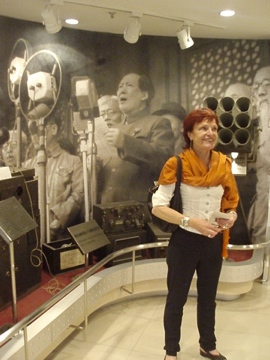
Forbidden Fruit – 1980 Beijing, a Memoir is now available on Amazon, although the official pub. date is February, 2016. See author’s website for details: www.gailpellett.com
For thirty years, chapters, fragments, scenes, observations, diary entries, letters and flirtatious meanderings have been residing in a box under my desk. Much of this writing took place in Beijing in 1980 and ’81, while I was living and working at Central Broadcasting – Radio Beijing. In a frenzy of trying to make sense of this sensually, intellectually and emotionally destablizing year, I wrote manically when I returned. First at my friend Deirdre English’ home in San Francisco, then at the home of another dear and generous friend, Karen Brown, in New York.
What was I thinking?
I had returned to the U.S., to New York, penniless and confused, depressed from leaving a budding relationship behind in China and distraught at trying to make sense of a year living and working at a news media institution that had no concept of journalism and in a police state without sharing the language. Although I had started hammering my brain with Mandarin the moment I arrived and although I was already dreaming in Mandarin when I left a year later, I was hopelessly illiterate. There is nothing so disorienting. What was I thinking? I’m a journalist. I envisioned a book immediatley, but soon disassembled from this plan as I realized how damaging my writing — however innocent — could be to co-workers and friends in Beijing. Their jobs, housing and children’s schooling could be at stake. So I quietly put all those papers — yes, we generated an awful lot of paper while writing drafts in those days — in a box. Without computers then, no disks. Just tons of paper, filling a large box. Beneath my desk.
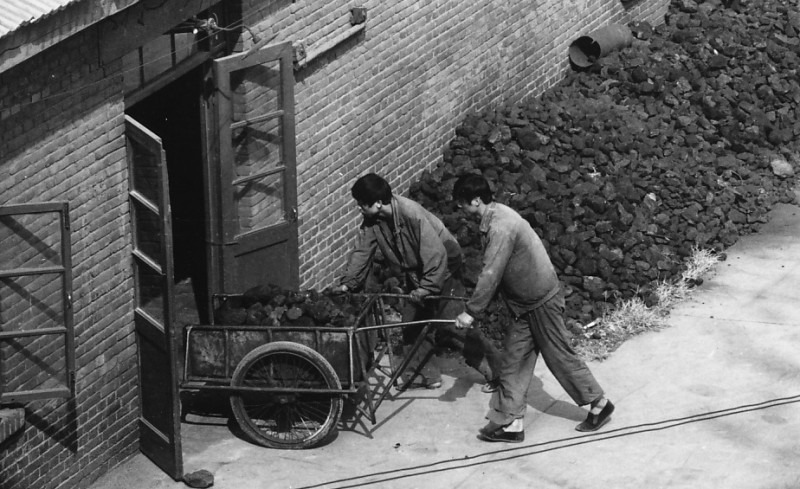
Tainted by working for the People’s Republic
I moved on. At first unable to get work because I was somehow tainted by Red China. I had, afterall, arranged on my own terms to work for the Chinese government. I hadn’t been sent by Fullbright, or US AID or the American networks. No, I wasn’t even a U.S. citizen then. I was still a Canadian with a Green card. No matter. I really wanted to go back, but with an American radio or television network behind me. (The Canadians already had people there). I had worked inside a sensitive Chinese institution. I had dozens of great ideas for stories. None of the American networks even had a bureau in Beijing. I went to see folks at ABC, at NBC and my old colleagues at NPR. No interest. Raised eyebrows. NPR had vague interest if I raised the money to do it. I was out of money, I had to get to work. I had to hit the ground running in New York and produce pieces for NPR about local and domestic issues. I had to pack away that extraordinary experience and get back to work, find a cheap apartment — a sublet from another generous girlfriend — and figure out how to re-enter. China got put in a Box.

Who’s Out There?
Deirdre English was editor of Mother Jones in those days and urged me to write a piece about the experience for MJ, but I couldn’t somehow massage that year into something that could be contained within it’s covers. Then my China buddy, Ron Dorfman, editor of The Quill, in Chicago, talked me through a way to focus in on one part of the experience. Radio Beijing. Keep it focused. What it was like doing that kind of radio after my background and experience. Who’s Out There? was published in 1982.
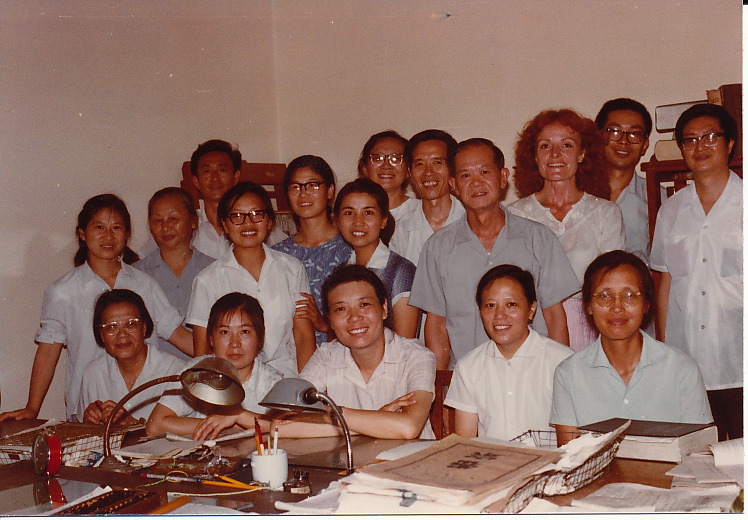
China Stories – Love and Marriage in the PRC
As I returned to producing features and documentaries for NPR I produced two on Chinese themes — one created from interviews I had recorded in Beijing called Love and Marriage in the People’s Republic and another based on interviews with Chinese students – from Radio Beijing’s English Department where I had worked — at the University of Missouri Journalism School. And in 1985 — after leaving MacNeil/Lehrer Newshour and all those utterly American stories I wrote a long, long feature piece for The Village Voice about Chinese dissident artists who were piling into New York for their first encounter with Western art and life – Is There Art After Liberation? China’s Scorched Flowers Go West.
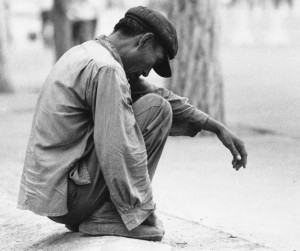
Big China stays in the box
But China, the big, scattered, complicated, confusing, mysterious story, stayed in the Box. Other Americans who went off to teach for a year in China returned and published books within a year. What was wrong with me? I convinced myself that teaching university students was a very different situation than working inside a propaganda organization close to the Central Committee in the nation’s capitol. The students were looser, more open, the university offered more stretch and time off. My situation at Radio Beijing was totally different. Incomparable really. China in a Box.
Over the past few years I have re-conceived the China book several times. First, I wanted to fictionalize it all. A series of short stories. Then, I wanted to make it into a huge examination of westerners confronting China — the historical story. Explorers, missionaries, journalists primarily. That story is so rich, and is relevant to our current era for Westerners trying to make sense of this rising global power. Once I cleared my desk of so many other distractions, my China finally emerged from the Box. Now, Forbidden Fruit – 1980 Beijing, a Memoir. Here’s how to buy it: http://gailpellett.com/
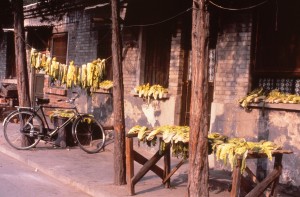
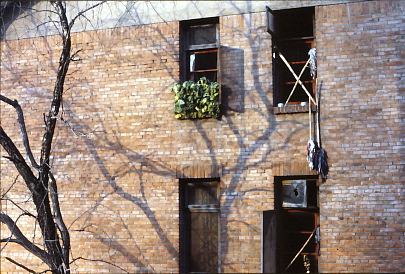
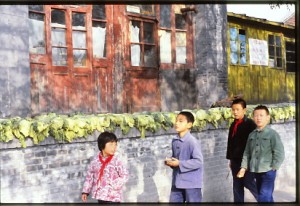
Gail–I’m knocked out by this fabulous website. I’ve spent an hour and a half here and have barely begun to explore it. You’ve done soooo much! Now to get China out of that box.
I get the feel and appreciate your guts to do it both then and now…keep on , great story
worth telling. and you were there.
Brava. China in a box. Keep it up Gail
This is incredibly compelling material and writing. I’m very curious to see where you go with it.
It would be weeks – months – before I understood why security was so rigorous in my apartment building — the foreign experts building — at Radio Beijing…and…
… and what? Please don’t leave me hanging… What a fascinating article!
I lived at the friendship hotel from ’83-’84 while my mother (canadian) taught at the university. I love reading your history and would be grateful for more details of your experience. Please write more, and more photos of cabbages?
Thanks so much for your encouraging words. My mash-up memoir/journalism/history/rumination book about my year in Beijing more than 3 decades ago is about to pop. I will let you know when it’s launching. Would love to hear your reactions! Gail
I lived at the friendship hotel for almost a year in 1981 and 82 while building the great wall hotel in beijing. Would love to hear more about beijing during this time. Did you attend any of the happy hours held at the various embassies on fridays? If so we must have run into each other. Do you know where else I can find articles on expats in beijing during this time?
Hi Bob, thanks for your comment on my site. I have just finished writing my memoir about my time in 1980-81. It will be published soon and I will be in touch when it’s available. Over the years there have been a few memoirs, mostly by language teachers and often from other parts of China. Best, Gail
Hi, amiga, you make some asptects of life in China come alive in a wonderful way. Greeat photos too. Cheers, cesar
How exciting to see this opus take shape now. I’ve dipped in and out and read several chapters. The book will be a tour de force..!!
phantastic!!! Great!!! Can’t wait to read the book!!
Look forward to this book. Fascinating topic and you were there!
Best wishes,
Gail Levin
Hi Gail.I was wondering how you were doing on the book. Looks like it’s just coming nicely over the horizon from China. It will be a great relief to finally get your book published. I know many publishers equate it to giving birth, because on the average, it takes 9 months to produce.
My book, TRAVELING LIGHT is doing well too. Hugs, Dannielle
cannot wait to read the book!
I agree with Tom: you better tell us about WHY you had to deal with such heightened security and what you were allowed to do and how you survived [I know…barely]
Gal we do look forward to your book and your memories in a way. Good luck and of course, whater we can do for you here we will evelyne
eager to read this.
This is so exciting – I look forward to reading your book and may a “thousand blossoms bloom” as we work towards building a justice world for all.
hugs tami
Love the pix & text excerpts on this website and can’t wait to read the whole book. It’s very timely as we listen to news about Hong Kong’s pro democracy protests, the symptoms of “affluenza” in certain strata of the People’s Republic, & the drastic measures taken to reduce air pollution in Beijing when world leaders visited (think of the coal shed seen outside the window of radio Beijing).
Gail is such an engaging writer . I’ve no doubt the book talks or readings she gives on future book tours will be also.
I was in China with a cultural workers group in 1976. So I’m real interested.
This is a treasure, Gail! Invaluable.
More, more…
xM
What an incredible emotional journey. Reminds me, ever so slightly, of my move to the Bronx. I hope to read more about how your year in China fit into your life.
This is going to be a fascinating read – can’t wait. I remember Chang’an Street full of cabbages in 1979. Those days long over…
I have never had much interest in China, but after reading your stories, I felt a mighty tug in that direction! Everyone should be reading your work, not just as educational material, but in order to follow the vast shift that China has made during our lifetimes, and also, to prepare ourselves for what will inevitably become the world seat of power in the near future. I feel so privileged to have been allowed to share this work and will certainly ensure that everyone I know is aware of it. Ho Ching Ming…had a fling. That’s all I know about China!!!
waiting to read all of what is in the BOX. Should be a winner.
Dear Gail,
Your introduction gave me enough to get me hooked on your story. I’m very interested to read more about your life in this mysterious country called China. I’m ready to travel to “China in a Box”!
Hi Gail, Cannot wait to read your Opus! I am sure knowing you it will be full of insights which will help in understanding China 30 years later!
Oh my Gail! You’ve done so much wonderful work over the many years. I’ve been especially struck by the clarity and elegant flow of your writing, whether in articles or emails. I’ve also been aware of how important China and the time you spent there has been for you. That’s bound to produce something special. I can’t wait to read this book-out-of-the-box.
Read this, gripped, from beginning to end. Glad you left us hanging on the security question, another spur to read the book. All my friends with any connection to China in those days (and there are so many as the comments also indicate) can’t wait to read the book–to relive and rethink those times, hopes, all of it. Great that the book is out of the box.
Some stories just hibernate until they are ready to be told. Now is obviously the time for this one. I can’t wait to read your unique perspective on this amazing personal and professional experience.
How brave of you to have comitted yourself to this venture – a rare example. Cannot wait to read the book. Christine
Thank you for giving us a peek inside the box. This just leaves me hungry for more. Your story deserves a mini-series! But I’ll settle for the book. Roy and I look forward to reading it.
I loved your stories when you were at Radio Beijing and doing calligraphy and rowing around in urban lakes. And also loved our conversations as we tried to figure out what everything meant. Can’t wait to re-visit that time in “China in a Box”.
Hi Gail, You have a unique take on China’s early efforts to modernize and to join the world, right after the fall of the notorious Gang of Four. I crossed paths with you briefly; you at Radio Beijing, me at China Central Television. I have never forgotten you. I look forward to diving into your examination of a closed political culture that desperately needed to open up yet scorned the very “foreign experts” and foreign ideas that could bring China into the 20th century. And now that you and I are in contact again, I can’t wait to continue our conversation. How soon can I buy the book?
So exciting Gail! A compelling story….waiting (im)patiently to read more.
So looking forward to hearing more of the story!
We’re looking forward to reading your book, Gail!
I remember this period well- was studying Chinese in college and an avid reader of that little red book. Great that you are telling this story.
Thank you for articulating that nearly indescribable, unique, grim but hopeful, fascinating period in Chinese history which we experienced together. There was anguish, there was absurdity, there was laughter. I cannot imagine trying to understand China today without the experience of the 80’s.
Let me know if you want more memories/pictures for your book, which i can’t wait to read!